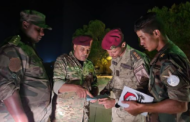Oct. 4, HoR votes for parliamentary elections to take place a month after Dec. 24 presidential elections.
Oct. 5, SOHR reports first batch of Syrian mercenaries repatriated from Libya through Turkey, followed by others Oct. 6, totaling around 300 men.
Oct. 8, militias clash in Tripoli leaving many killed, injured.
Oct. 8, 6 migrants shot dead during mass escape from Tripoli’s Ghot Shaal overcrowded detention center.
TRIPOLI
- Armed clashes erupted on the night of Oct. 8 between militias affiliated with the Government of National Unity (GNU)’s Defence and Interior Ministries at the airport road in Tripoli. The clashes have raised concern for the country’s fragile ceasefire ahead of the historic nationwide elections set for December. In a statement, the Security Directorate’s Support Force revealed that the Deputy Commander of the Force, Captain Ali Al-Jabri, was killed. It added that the clashes are still ongoing between those armed men who want to storm the headquarters of the Security Directorate’s Support Force;
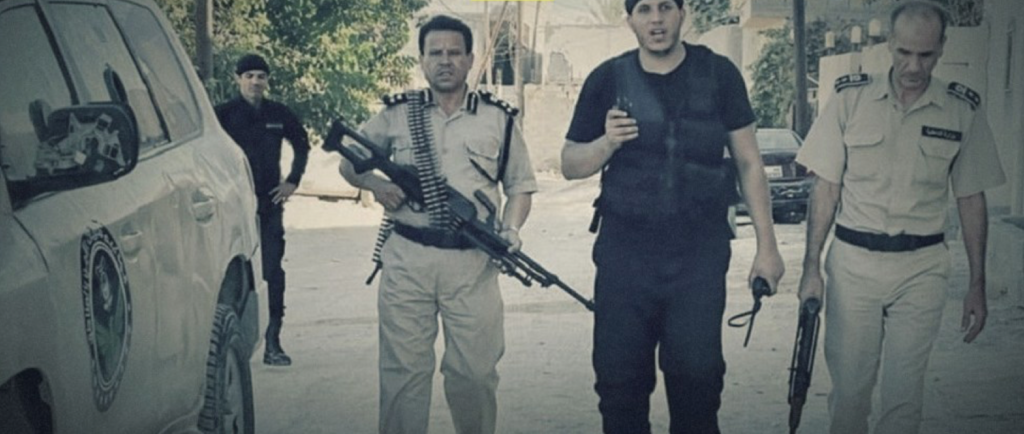
- At least six migrants were shot dead at a detention centre in the Libyan capital, Tripoli. This occured amidst reports of a mass escape of migrants from the overcrowded facility, the International Organization for Migration (IOM) reported Oct. 8 evening. In a statement, the IOM’s Head of mission in Libya, Federico Soda, said that the overcrowding at Ghot Shaal detention centre had led to chaos, with people sleeping in the open and different security forces present. Several videos posted on social media showed that dozens of people were pouring through a gap in a fence, and larger numbers were marching through Tripoli’s streets. Dozens of migrants were seen sitting on the floor surrounded by guards and said there was a very heavy security presence around the area and there had been sporadic sounds of shooting;
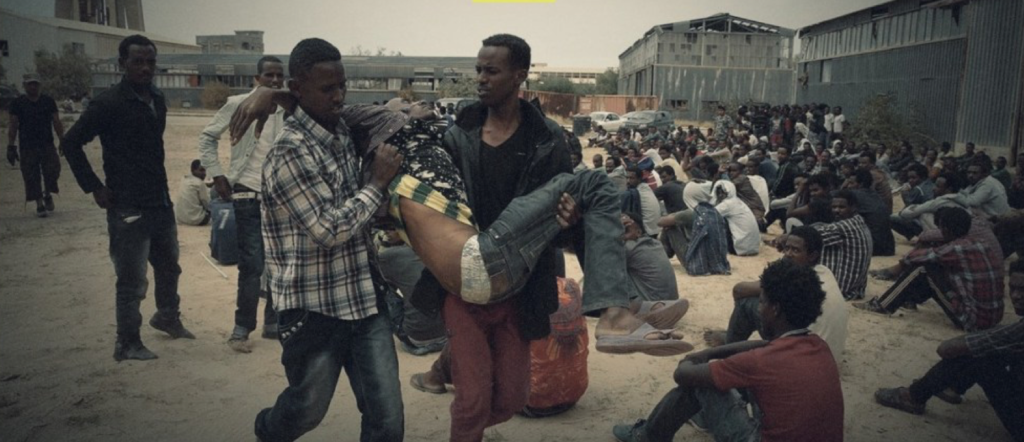
- Oct. 7, the Anti-Narcotics General Administration (ANGA) arrested an imam of a mosque in the Tajoura region, eastern Tripoli, on charges of illicit trafficking of narcotic pills. In a statement, the administration said that it had received reports that a resident of the Salah Al-Din district in southern Tripoli sold narcotic pills inside a mosque in Tajoura. “During the investigation, it was revealed that the mosque imam was found to be selling pills to the local youth,” it added. As well as confirming that it had taken all legal measures against the man, and referred him to the Drug Control Prosecution;
NATIONAL SECURITY
- Oct. 9, the United Nations High Commissioner for Refugees (UNHCR), called for an end to the arrest of asylum seekers in Libya and also urged for the resumption of humanitarian flights to expatriate refugees out of the country. In a statement, the UNHCR said, “we continue to call on Libyan authorities to respect at all times the human rights and dignity of asylum seekers and refugees, stop their arrests, and release those detained, including those who had been due to leave on evacuation and resettlement flights.”;
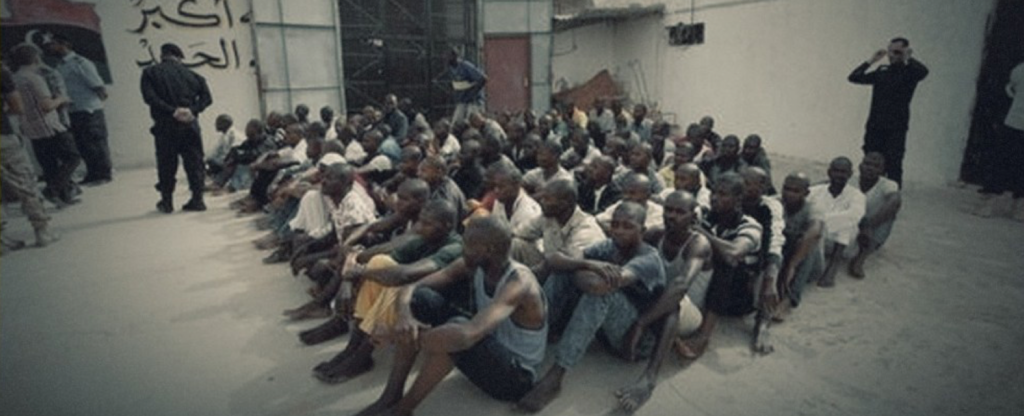
- A source told Al-Arabiya news that 90 Syrian mercenaries left Libya for Turkey, days after the first batch of mercenaries began leaving Libyan territory. The source added that the mercenaries left from Tripoli’s Mitiga Airport on a Libyan Airlines flight Oct. 6. He also confirmed that the mercenaries were placed in a special waiting room after they were transferred from the Yarmouk camp, south of Tripoli, to the airport via two buses belonging to Al-Sahem Company;
- Libya’s Interior Minister, Khaled Mazen affirmed his keenness to resume voluntary repatriation flights for migrants, resolve issues surrounding their abuse, and hold those responsible to account. During a meeting with the Chairman of the Foreign Affairs Committee of the Libyan Parliament, Youssef Al-Agouri, the interior minister stressed the ministry’s respect for the rights of migrants. Al-Agouri emphasised the importance of resuming these flights, “to alleviate human suffering as a result of overcrowding in shelter centers, and to follow up on local and international reports of violations against migrants, especially in shelters.”;
- Oct. 5, Tunisian security authorities in the city of Medenine thwarted an attempt to smuggle nearly EUR 1 m into Tunisia from neighbouring Libya. In a statement, the General Administration of the Customs said that this comes as part of efforts to stop the smuggling of money on the southeastern border with Libya;
- Oct. 5, the Syrian Observatory for Human Rights (SOHR) reported the return of the first batch of Syrian mercenaries from Libya. A plane carrying about 300 Syrian fighters arrived in Turkey, and were transferred to Syria. The Observatory pointed out that this comes as part of the process of withdrawing foreign forces from Libya. As well as in light of the expected meeting of in Geneva on the issue of mercenaries in Libya.
NATIONAL POLITICS AND SOCIAL ISSUES
- Oct. 10, Officials in the Government of National Unity (GNU) in Cyrenaica said that the presidency did not commit to implementing the terms of the political agreement and the governing principles of the road map. They explained that GNU did not commit to the unification of the institutions and the equitable distribution of capabilities through the correct legal means between the regions. In a statement, they said that the executive authority was established as a result of a road map that was developed on the basis of geographical balance to ensure fair distribution and equal opportunities;
- The Libyan Undersecretary of the Ministry of Interior for Technical Affairs, Faraj Qaim, accused the Prime Minister of the Government of National Unity (GNU), Abdelhamid Al-Dbaiba of favouritism and bias in the selection of some Officials. In remarks to the Libya’s news outlet Al-Marsad, Qaim said Al-Dbaiba is conducting electoral propaganda at the expense of the Libyan people. He alleged that the Prime Minister does not want to hold elections in the first place and is concentrating all power under his control;
- Oct. 9, the Head of High National Elections Commission (HNEC), Emad Al-Sayeh, said that preparations for holding the upcoming elections are almost finished, despite differences over voting laws and warnings the outcome could be contested. “We are 80 or 90 percent ready” for the presidential and parliamentary votes in December and January, Al-Sayeh said in an interview with the AFP Oct. 9;
- The Director of the Central Bank of Libya’s (CBL) Governor’s office, Abdel-Latif Al-Tunisi announced his resignation Oct. 7. In press statements, Al-Tunisi denied all reports that his resignation was due to differences with the CBL Governor, Al-Sidiq Al-Kabir. Instead, claiming personal reasons;
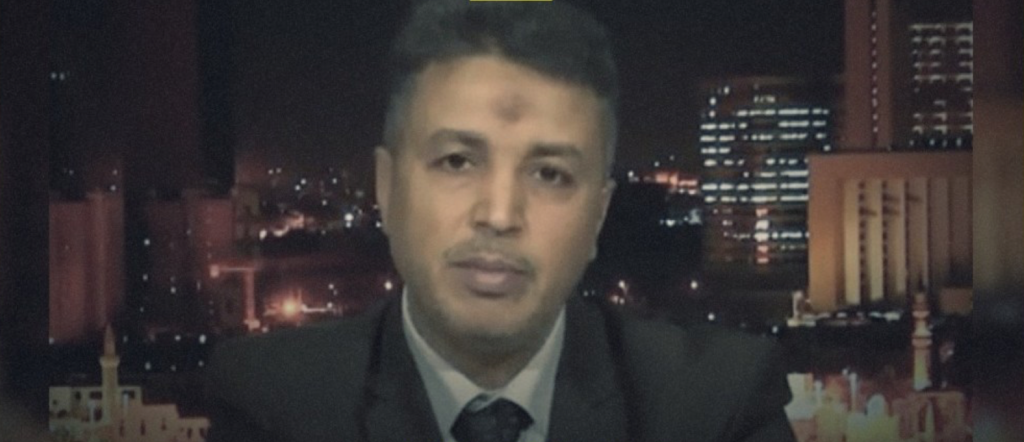
- Oct. 5, Libya’s High Council of State (HCS) announced its rejection of the parliamentary elections law issued by the Libyan Parliament in a plenary session held Oct. 4. In a statement, the Spokesman for the High Council of State, Mohamed Abdel-Nasser, claimed that the newly-approved law is a violation of the Libyan Political Agreement (LPA), which was signed in Morocco in 2015. This included a constitutional declaration, which stipulates the need for an agreement between the two councils to issue electoral laws;
- Oct. 4, the Libyan Parliament approved a law for parliamentary elections to take place a month after the planned 24 December presidential elections. Parliament Spokesman, Abdullah Blaiheg said they had approved all articles of the law, which will keep Parliament with the same number of MP’s. He pointed out that the approved law was voted on by 70 to 75 MP’s who were present the session.
INTERNATIONAL RELATIONS
- Oct. 10, a delegation from the French MEDEF will arrive in Libya for the first visit of its kind since 2012. It will meet with several Ministers of the Government of National Unity (GNU) to study the signing of several contracts in the field of reconstruction. The visit aims to reaffirm French interest in Libya, ahead of the international conference on Libya led by Emmanuel Macron;
- Oct. 9, the Libyan state-owned Afriqiyah Airways announced that its first flight coming from Mitiga airport in Tripoli has landed in Cairo International Airport after a suspension that lasted seven years;
- Oct. 5, Nigeria President, Muhammadu Buhari said that as long as Libya remained unstable, the proliferation of arms and the problems currently faced by the Sahel would continue. He spoke in Addis Ababa, Ethiopia, during a bilateral meeting with President, Salva Kiir of South Sudan, according to Daily Trust. He reiterated the full support of Nigeria to all efforts to bring long-term stability and prosperity to the continent;
- Oct. 6, the US Ambassador to Libya, Richard Norland said that Libya’s 5+5 Joint Military Commission (JMC) meetings in Geneva are an opportunity to reach a compromise between the rival parties. “On behalf of the United States, I wish to express our hope that the JMC continues to build on the progress it has already made. The meetings in Geneva are another chance to find common ground on military, security, and fiscal issues that still divide Libya,” Norland said;
- The European Center for Counter-Terrorism and Intelligence Studies (ECCI) stated in a report that the Libyan Islamic Fighting Group (LIFG) is one of the most prominent extremist “Islamist” groups in Britain. in a comprehensive review outlining the country’s post-Brexit political priorities, the British government warned that mismanagement and chaos, particularly in Africa and the Middle East, would give way to extremist groups while increasing the likelihood of states sponsoring terrorism and resorting to proxy wars. LIFG’s most prominent members include Abdel-Hakim Belhaj and Khaled Al-Sharif, both of whom fought with the Mujahedeen movement and Al-Qaeda in Afghanistan;
- Oct. 5, Deputy Prime Minister and Minister of Presidential Affairs of the United Arab Emirates (UAE), Sheikh Mansour bin Zayed Al-Nahyan, received the Libya Minister of Foreign Affairs, Najla Al-Mangoush and her accompanying delegation at Qasr Al-Watan. During the meeting, they discussed the prospects of further consolidating the strong relations between the two nations. They also exchanged views on the current situation in Libya, and reviewed the latest regional and international developments;
- Italian Foreign Minister, Luigi Di Maio discussed a number of issues facing the Mediterranean region with Jordanian Foreign Minister, Ayman Safadi in Rome. Di Maio affirmed his commitment to support the Libyan political transition process by achieving two priorities: the 24 December elections, and the withdrawal of all mercenaries and foreign fighters;
- The Nigeria Embassy in Libya thanked the security forces for their efforts in facilitating the return of Nigerians back home. In a message, the Head of the mission praised the efforts made by the Anti-Illegal Migration Service, the Director of Operations and Control Department of the agency, and the head of the deportation department at Mitiga International Airport;
- Egyptian Foreign Minister, Sameh Shoukry met with his Russian counterpart, Sergey Lavrov in Moscow, to discuss a number of regional issues, especially the Libyan crisis. Shoukry said during a joint press conference Oct. 4, that they discussed ways to maintain the stability and unity of Libya, affirmed the need to maintain the ceasefire, and ensure the exit of all foreign forces from Libya;
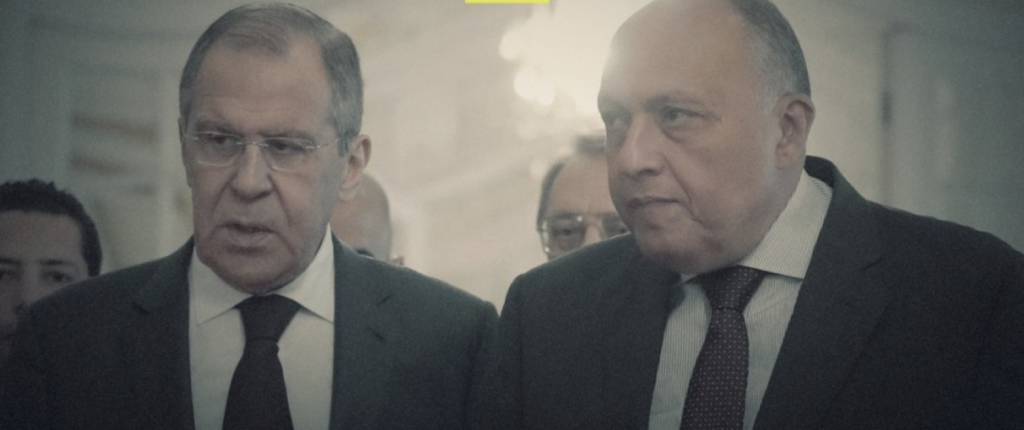
- Oct. 4, the King of Bahrain, Hamad bin Isa Al-Khalifa, held a meeting with Libyan Minister of Foreign Affairs, Najla Al-Mangoush in Manama. Al-Mangoush conveyed the greetings of the Government of National Unity’s (GNU) Prime Minister, Abdel-Hamid Dbaiba, and the Head Presidential Council, Mohamed Al-Mnifi to the Bahraini King.




